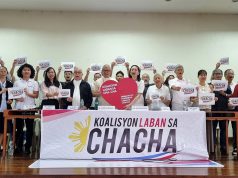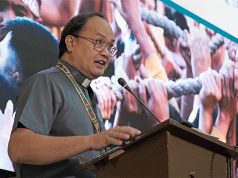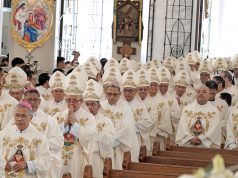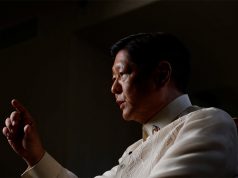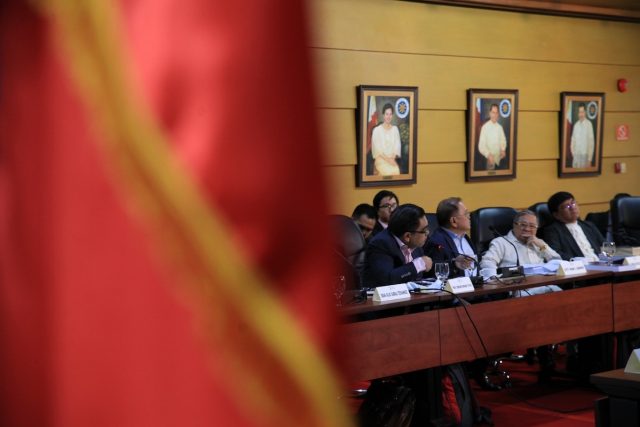
MANILA – The Consultative Committee reviewing the 1987 Constitution on Monday voted ten to nine to regulate political dynasties, as opposed to a total ban on political dynasties. They also voted to extend the regulation on political dynasties up to the second degree of consanguinity and affinity, as opposed to the third and fourth degrees.
This means that incumbent officials’ parents, children (including legitimate, illegitimate, legitimated, adopted, and stepchildren) and their spouses; grandparents, siblings and their spouses; grandchildren and their spouses; spouses; parents-in-law; brothers- and sisters-in-law and their spouses; and grandparents-in-law will be covered by the ban.
These recommendations will go into a report that the Concom will present to President Rodrigo Duterte for consideration in time for his State of the Nation Address in July.
To start the Concom’s session on Monday at the Philippine International Convention Center in Pasay City, De La Salle University political science professor and former dean Julio Teehankee presented arguments for the regulation of political dynasties, 295 of which now exist throughout the Philippines.
According to him, more than 160 political clans with two or more members have already served in Congress.
He noted that cases of so-called “good dynasties” are “few and far between,” and cited a study by a Political Science faculty member of the University of the Philippines which found that members of the House of Representatives who get elected again and again do not get “more tried and tested”. Rather, as they get entrenched into power, their productivity is diminished.
The “main evil” that must be addressed, said Teehankee, is the incumbent advantage which leads to self-perpetuation. He cited studies that show that local officials who have been elected several times have a tendency to use their position to their advantage in electoral competition.
He further explained that political dynasties draw on the public coffers and even rely on violence to “reproduce” themselves in office.
Here is how the Concom voted:
Arthur Aguilar – total ban, 4th degree
Prof. Eddie Alih – regulation, 4th degree
Fr. Ranhilio Aquino – absent
Atty. Antonio Arellano – total ban, 4th degree
Atty. Ali Balindong – regulation, 2nd degree
Dr. Virgilio Bautista – regulation, 2nd degree
Atty. Ferdinand Bocobo – regulation, 2nd degree
Atty. Reuben Canoy – total ban, 4th degree
Atty. Roan Libarios – regulation, 2nd degree
Retired Associate Justice Antonio Nachura – total ban, 2nd degree
Atty. Susan Ubalde-Ordinario – total ban, 4th degree
Atty. Randolph Parcasio – regulation, 4th degree
Former Senate President Aquilino Pimentel, Jr. – total ban, 4th degree
Retired Associate Justice Bienvenido Reyes – regulation, 2nd degree
Atty. Rodolfo Robles – regulation, 4th degree
Atty. Victor de la Serna – total ban, 4th degree
Prof. Edmund Tayao – regulation, 2nd degree
Dean Julio Teehankee – total ban, 2nd degree
Former Kalinga Representative Laurence Wacnang – total ban, 2nd degree
Former Chief Justice Reynato Puno – regulation, 2nd degree






